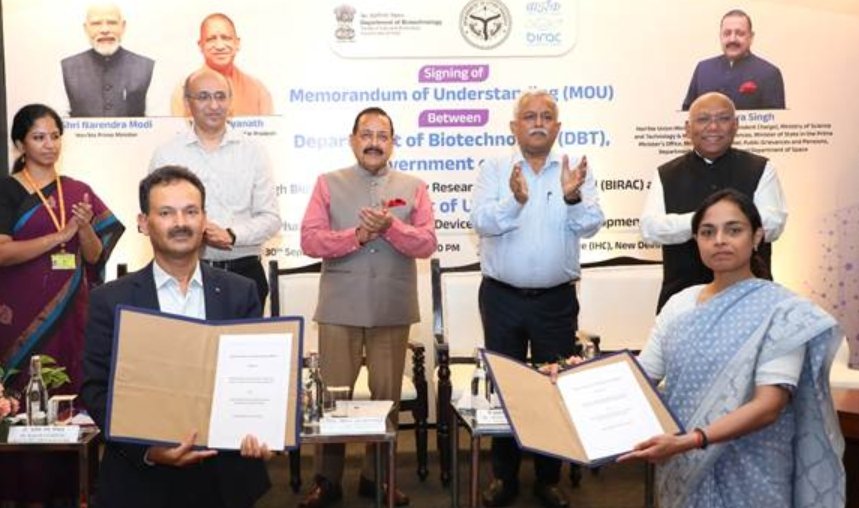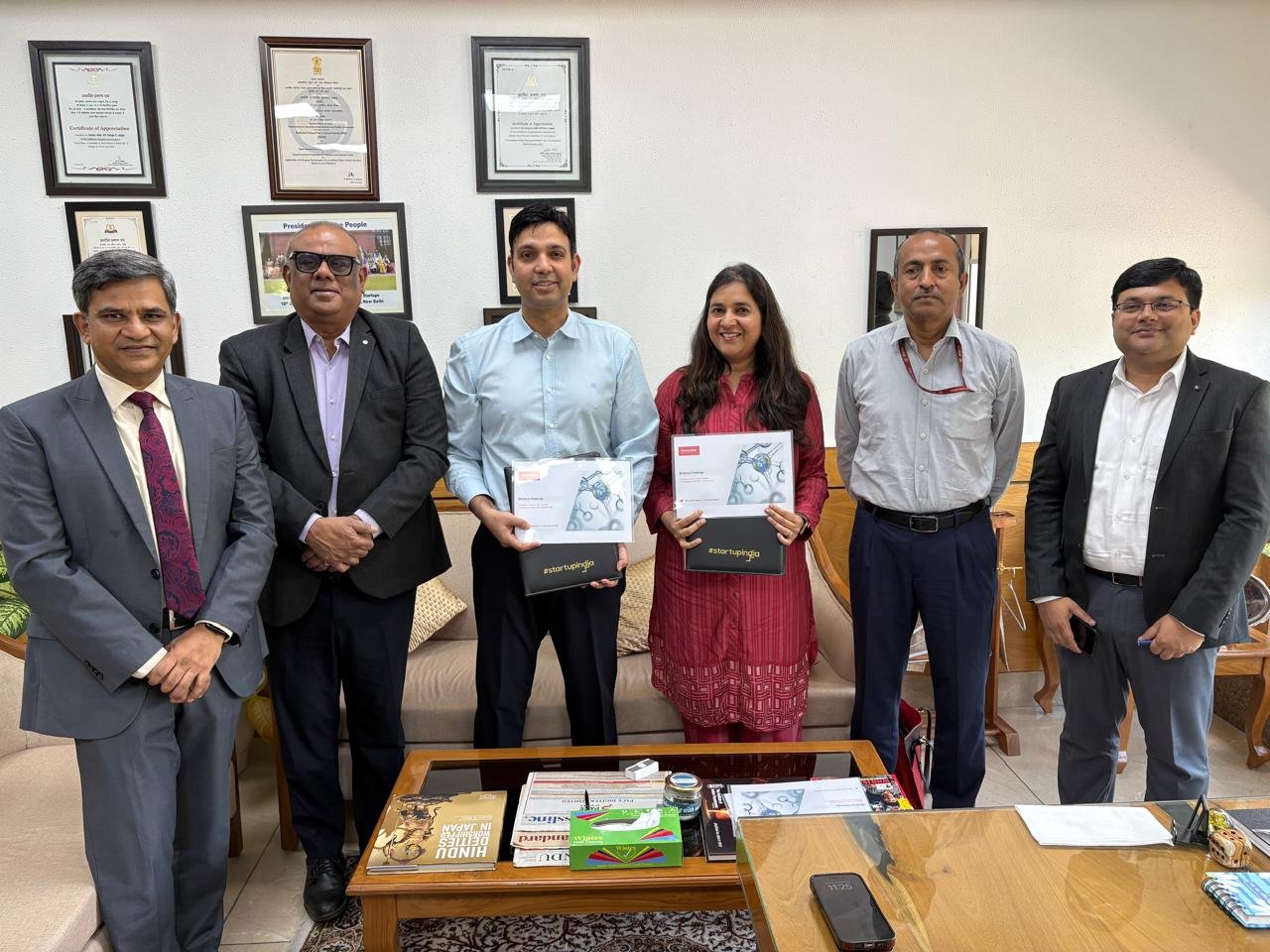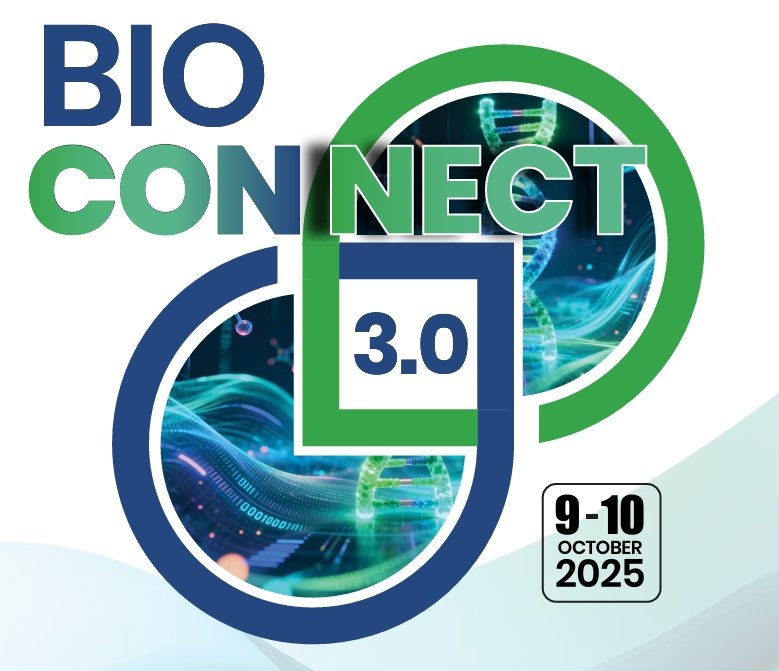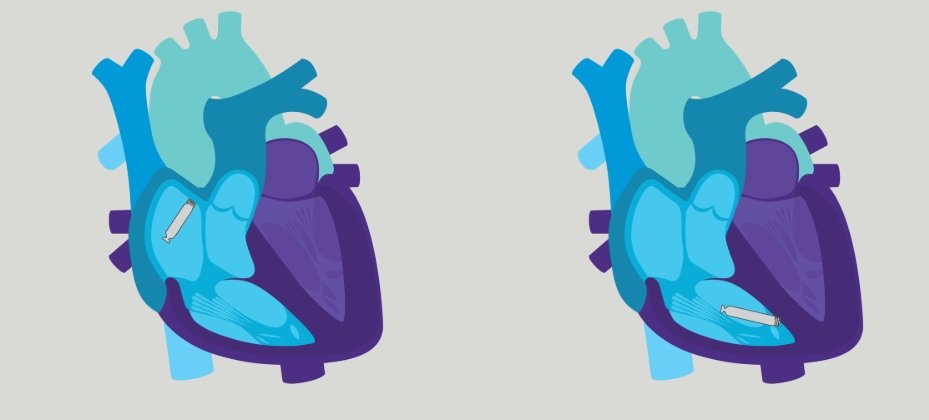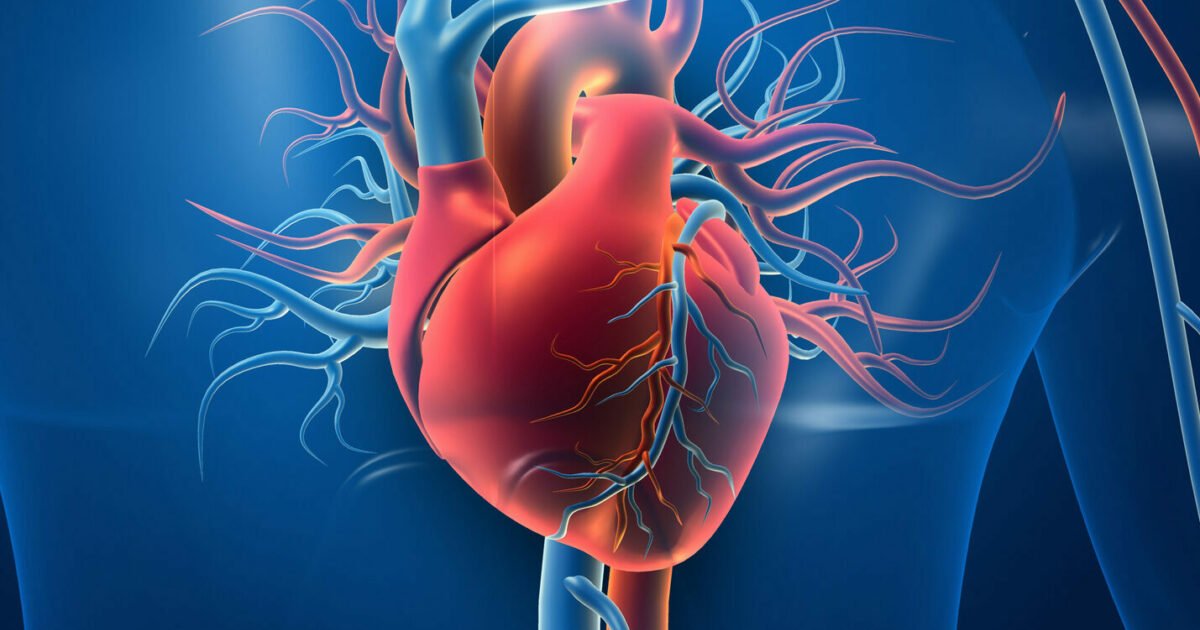Herbal Harborage
July 21, 2003 | Monday | News
 The legendary royal garden of the erstwhile Oudh kings,
"Sikander Bagh", who ruled the region during the 19th century before
being taken over by the British in 1857, is today the home of the premier
national plant research center in the country. And NBRI is celebrating the
global jubilee of its formation this year. Over the past fifty years, it has
made patient strides scouting for patents and plants. CSIR took over the
National Botanical Garden in 1953 and expanded the scope of the institute into a
multidisciplinary plant research centre and it was renamed as the National
Botanical Research Institute in 1978. Ever since, the institute has produced
innumerable varieties in horticulture, products as functional foods and filed
almost 30 patents in India and abroad. Today, it is an internationally known
research center that focuses on both basic and applied research in various
aspects of plant sciences for the conservation and sustainable utilization of
plant genetic resources for human welfare.
The legendary royal garden of the erstwhile Oudh kings,
"Sikander Bagh", who ruled the region during the 19th century before
being taken over by the British in 1857, is today the home of the premier
national plant research center in the country. And NBRI is celebrating the
global jubilee of its formation this year. Over the past fifty years, it has
made patient strides scouting for patents and plants. CSIR took over the
National Botanical Garden in 1953 and expanded the scope of the institute into a
multidisciplinary plant research centre and it was renamed as the National
Botanical Research Institute in 1978. Ever since, the institute has produced
innumerable varieties in horticulture, products as functional foods and filed
almost 30 patents in India and abroad. Today, it is an internationally known
research center that focuses on both basic and applied research in various
aspects of plant sciences for the conservation and sustainable utilization of
plant genetic resources for human welfare.
Plant health, economic wealth
What keeps NBRI going? Dr P Pushpangadan, director, NBRI
explains, "Unless we love the nature, it is difficult to work for it. To
sustain our natural harmony, we all have to work for the same. At NBRI, we are
all working to produce good quality eco-friendly products." Its mission is
to be a premier national and international center on plant science research and
development, be the prime catalyst in the conversion of plant wealth into
economic wealth and develop as a national referral center for the knowledge base
related to plant biodiversity.
Offering consultancy and technology, today, it caters to the
needs of every aspect of plant research in the South Asian region in general and
India in particular. In that mission, its practices encompass biodiversity,
bioinformatics, biomass biology, biotechnology, conservation, ethnopharmacology,
floriculture, plant physiology, genetics and plant breeding, molecular biology
and genetic engineering, natural product development, etc.
NBRI is rich in scientists and knowledge base. For instance,
Dr Rakesh Tulli and his group work in the area of plant molecular biology. Dr
Tulli informs, "The main objective of our work is to develop transgenic
plants improved for agronomically important characters. Characterization and
designing of genes for toxicity to insects is also a part of our research. Apart
from these, we also offer consultation and contract research for the biotech
industry." Dr Shantha Mehrotra is another eminent scientist there. The
Department of Science and Technology presented her the leading women scientist
award recently. She is working on identification, authentication and evaluation
of medicinal plants/raw drugs by modern pharmacogenic methods which include
correct taxonomic identification of plants and their parts, macro-and
microscopical details, histochemical and biological analysis of the plant parts
used as medicine, SEM studies of plants parts. Mehrotra adds, "We are
working on to produce quality evaluation and standardization of herbal drugs and
products and scientific validation of ethnobotanical claims."
With a rich heritage of research, the institute is not
confining its research activities to the laboratories alone. It is looking at
spreading awareness among the masses through various means and ways. Says Dr
Pushpangadan, "We have established a garden for "housewives" in
to which we welcome housewives and educate them about the easy biotech
application in their daily life. We also have a lab exclusively for kids. In
this lab, kids can use any instrument they like. These are the various types of
awareness programs which NBRI conducts regularly."
NBRI recognizes that technology developed in any laboratory cannot be
considered as successful unless it reaches the market. Agrees Dr Pushpangadan,
"It is always difficult for the scientific society to develop the skills to
market their inventions. For that we opt for industrial collaborations. But at
NBRI, we are planning to recruit proper MBAs for marketing our products. This
way we can reach the market in a proper way. CSIR has granted two posts for the
Business Development Unit at NBRI." The message from NBRI director is
crystal clear—"Biodiversity and the associated indigenous knowledge
systems are the two invaluable capital assets of countries like India. They can
be utilized profitably to generate a number of IPR-covered high value products
and technologies for domestic as well as international trade."
|
 "Personalized medicine is the future of modern medical field" "Personalized medicine is the future of modern medical field"
NBRI director Dr P Pushpangadan outlined his organization's future plans to
BioSpectrum.
What are the emerging segments of plant biotechnology?
Herbal technology is an emerging field. It has applications
in areas like cosmetics and health food. The institute is very much involved in
programs of linking traditional knowledge into biotech. This is called herbal
technology. NBRI has also set up a "Herbal Standardization Committee",
the motive of which is to identify the right raw material for making any herbal
drug. We develop drugs of preventive, promotive and corrective in nature.
Nutraceuticals is another form of herbal-based preventive and
promotive medicine. NBRI is actively working on developing nutraceuticals. The
main objective of the institute in this area is to identify the natural sources
for phytochemicals/phytonutrients and development of technology package for
nutraceuticals/functional foods as health care system.
To what extent has India's biodiversity been explored?
The utilities of the Indian plants have been explored only to
some extent. This is because we do not have any databases available for the
same. Neither have we any "shared" knowledge base on this issue.
Tribals have very good knowledge of biodiversity but we cannot use it.
NBRI is actively involved in making a "Passport Data of
Important Wild Genetic Resources" with reference to their aromatic and
herbal values. We are also working on categorizing the toxicology of plants. We
are working along with the representatives of other medical fields as like
Ayurveda, Sidha, and Unani. In this way we are trying to build a bridge between
gene-diversity and traditional wisdom.
What is the future of diet, food and medicine systems?
Personalized medicine is the future of modern medical field.
Under this, doctors will explore a patient's gene and then give the dosage
accordingly. Scope of personalized food is huge. Especially for the diabetic or
heart patient, personalized medicine and food are needed. At NBRI scientists
have developed herbal products for children, designer food for patients of
hypertension and diabetes and functional food for pregnant women.
Nutritive security is widely needed in the case of pregnant
women. We have categorized the nutritive requirement of women as per the
development stages of the child. As a functional herbal drink, we have produced
"Nibra" as a healthy soft drink with 1 per cent alcohol.
How do you rate traditional medical practices such as
Ayurveda, Sidha and Unani in this modern world?
These traditional medicinal practices have some very
important qualities which can easily be absorbed into modern medicines. Their
values can be understood after having a look at the present western culture. The
western people are more inclined towards the Ayurveda than the Indians. We have
involved experts from Ayurveda, Sidha, and Unani in our NMITLI project to
develop anti-virals for Hepatitis. This project is coordinated with RRL, Jammu,
IICT and Dabur.
What is the scenario of botanic gardens globally and where
does India stand in this segment?
In a global survey done by some US agency, it was written that about 200
million people around the globe visit botanic gardens every day. Though India
has 145 botanical gardens, only 11 of them are of that standard which get more
than 1,000 visitors daily.
|
Research activities
Here is a list of research areas at NBRI.
Biodiversity research by inventorying, monitoring,
assessment, conservation and sustainable utilization of plant genetic resource
of India with special focus on medicinal, aromatic, dye and gum yielding plants.
Bioprospecting for search of commercially valuable genes,
biodynamic compounds and development of scientifically validated, value-added
and standardized novel plant products—herbal drugs, pharmaceuticals,
nutraceuticals and cosmaceuticals.
Biomass biology including biopesticides, biofuels and
petroleum alternatives, and environmental sciences including phytoremediation
and abatement of terrestrial and aquatic pollution including studies on
greenhouse gas emission.
Bioinformatics by developing computerized/electronic
databases on Indian plants with special focus on medicinal, aromatic, dyes, gum
and tannin yielding plants and rare and threatened plants of botanic gardens and
implementing applications of IT in plant science research and development of
bio-information products.
Biotechnology (biotech processes/ products) including trans-disciplinary
studies on molecular biology and genetic engineering for development of
transgenic plants.
Genetics, plant breeding and agrotechnology includes
selection and genetic enhancement for development of new promising varieties of
economically important non-crop plants.
|

Nutraceutical products
Nutra-Preg 16: This product is for women who are
one-six months pregnant. It is for optimum health of the mother and helps
brain development of the foetus/infant.
Nutra-Preg 79: This is for seven-nine months
pregnant-women, used for the same purpose as Nutra-Preg 16.
Nutra-Lact: A product for lactating mothers that
succors good health and postnatal care of lactating mother and child.
Nutra-Wom GH: This is for the general good health of
women.
Nutra-Kid: It helps the infants and children up to two
years of age to have optimum physical growth and good development of nerve
(brain).
Nutra-Child: General good health of adults of all age
groups.
Nutra-Mind: A brain tonic
Nutra-Immune: For general good health of adults of all
age group.
Nutra-Age: For general good health of the aged.
Nutra-Diab: For general good health of the diabetics.
Nutra-Pan-Ton: Pancreas tonic for diabetics.
Nutra-Card: A heart tonic.
Nutra-Speech: General good health and speech disorder
therapy.
|
Herbal products
Lipstick, Luvstick: This is developed from purely natural
herbal colorants composition blended with selected essential oils or aroma
isolates that are capable of altering the mood and mental perception of the
person who applies the lipstick. The aroma acts as mood lifting, antidepressant,
anti-stress, stimulant, soothing, creative thought inducing, anxiety reducing,
sensual pleasure providing, fragrant and refreshing agents.
Fermented drink, NBIRA: It is a mild herbal beverage, like
beer, with 2-3 percent alcohol content. NBIRA is fortified with other health
protective and promotive attributes such as hepatoprotective, antioxidant,
immuno-enhancing, anti-stress, and anti-fatigue properties. The beer is
developed from a fruit, which is available in bulk and is cheap and has powerful
antioxidant, immuno-modulator and diuretic properties.
Soft drink, NBIRASOFT: These herbal drinks contain a
combination of 5-6 extracts from indigenous medicinal plants, which are
fortified with other health protective and promotive attributes such as
hepatopro-tective, antioxidant and immuno-modulator besides providing instant
energy and vitality.
Dry color powder, Gulal: The invention relates to a process
for the preparation of synergistic herbal dry color composition by lending of
natural dyes with natural ingredients in specific proportions and under specific
conditions. The resultant color powder thus prepared has synergistic action of
natural dyes and natural ingredients resulting in good sticking capacity of skin
and easily removable by soft mop. These colors can be used for playing Holi,
cultural dances, and making rangoli.


 The legendary royal garden of the erstwhile Oudh kings,
"Sikander Bagh", who ruled the region during the 19th century before
being taken over by the British in 1857, is today the home of the premier
national plant research center in the country. And NBRI is celebrating the
global jubilee of its formation this year. Over the past fifty years, it has
made patient strides scouting for patents and plants. CSIR took over the
National Botanical Garden in 1953 and expanded the scope of the institute into a
multidisciplinary plant research centre and it was renamed as the National
Botanical Research Institute in 1978. Ever since, the institute has produced
innumerable varieties in horticulture, products as functional foods and filed
almost 30 patents in India and abroad. Today, it is an internationally known
research center that focuses on both basic and applied research in various
aspects of plant sciences for the conservation and sustainable utilization of
plant genetic resources for human welfare.
The legendary royal garden of the erstwhile Oudh kings,
"Sikander Bagh", who ruled the region during the 19th century before
being taken over by the British in 1857, is today the home of the premier
national plant research center in the country. And NBRI is celebrating the
global jubilee of its formation this year. Over the past fifty years, it has
made patient strides scouting for patents and plants. CSIR took over the
National Botanical Garden in 1953 and expanded the scope of the institute into a
multidisciplinary plant research centre and it was renamed as the National
Botanical Research Institute in 1978. Ever since, the institute has produced
innumerable varieties in horticulture, products as functional foods and filed
almost 30 patents in India and abroad. Today, it is an internationally known
research center that focuses on both basic and applied research in various
aspects of plant sciences for the conservation and sustainable utilization of
plant genetic resources for human welfare. "Personalized medicine is the future of modern medical field"
"Personalized medicine is the future of modern medical field"
